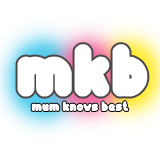Jaundice is a common and usually harmless condition in newborn babies that causes yellowing of the skin and the whites of their eyes. (The medical term for this condition is neonatal jaundice.)
Other possible symptoms include:
- dark urine
- pale coloured stools (faeces) instead of bright yellow or orange coloured stools
Symptoms usually develop 2-3 days after birth.
Most cases of jaundice in babies get better without the need for treatment.
When to see your GP or midwife
Your baby will usually be checked for jaundice 72 hrs after birth by a midwife or health visitor.
However, if your baby develops jaundice after this time contact your GP for advice.
While jaundice is not usually a cause for concern it is important to get it checked to see if it needs treating.
Why does my baby have jaundice?
Jaundice is caused by the build-up of bilirubin in the blood. Bilirubin is a yellow substance produced when red blood cells are broken down.
The liver should filter the bilirubin from the blood, and change it into a form that allows it to be passed out from the body in stools. In newborn babies, the bilirubin builds up too fast for the liver to filter it all out, causing jaundice. This can occur because:
- newborn babies have more red blood cells than adults, and the red blood cells have a shorter lifespan
- the breakdown and removal of bilirubin is slower in newborn babies than in adults as the liver is still developing
Although in a small number of causes jaundice can be the sign of an underlying health condition. This is often the case if jaundice develops quickly after birth (within the first 24 hours).
Treating jaundice
Most cases of jaundice in babies do not require treatment as the symptoms normally pass within 10-14 days (although in a minority of cases symptoms can last longer).
Treatment is usually only recommended if tests show a baby has very high levels of bilirubin in their blood (this is known as significant hyperbilirubinaemia). This is because there is a small risk that the bilirubin could pass into the brain and cause brain damage.
There are a number of very effective treatments used to quickly reduce bilirubin levels, including:
- phototherapy –a special type of light shines on the skin which breaks down bilirubin
- a type of blood transfusion known as an exchange transfusion
Most babies respond well to treatment and can leave hospital after a few days.
Who is affected?
Jaundice is one of the most common conditions that can affect newborn babies. It is estimated that 6 out of every 10 babies will develop jaundice (this rises to 8 out of 10 babies born prematurely.).
Although only around 1 in 20 babies has levels of bilirubin in their blood that are high enough to need treatment.
For reasons that are unclear breastfeeding a baby increases the risk of them developing jaundice which can often persist for a month or longer. It is estimated that 1 out of 10 breastfed babies will still have jaundice when they are one month old.
(Though in most cases the benefits of breastfeeding far outweigh any risks associated with jaundice). Websites for advice and support: http://www.bbc.co.uk/health/physical_health/conditions/jaundice2.shtml http://www.babycentre.co.uk/baby/health/jaundice/ http://www.patient.co.uk/doctor/Neonatal-Jaundice.htm

.jpg)
No comments:
Post a Comment